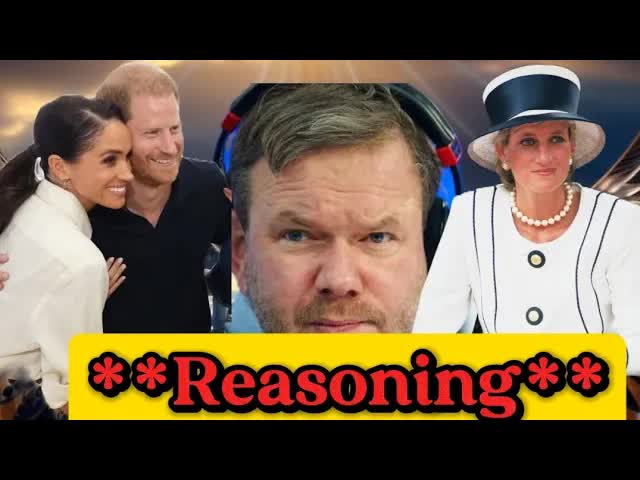In a world where the tabloids reign supreme, Prince Harry’s ongoing struggle with the press reveals a complex interplay between personal trauma and public scrutiny.
The royal family, often perceived as a bastion of tradition, finds itself embroiled in a media war that challenges its very foundations.
It’s intriguing how the right-leaning newspapers have taken the lead in critiquing Harry and Meghan, despite the common belief that such outlets are staunch defenders of monarchy.
This contradiction raises questions about the motivations behind their relentless coverage.
Harry’s frustrations with the media are palpable.
In various interviews, he has expressed his disdain for the way the press portrays him and his family.
“My father always says don’t read it,” he remarks, highlighting the irony of being both a subject of tabloid frenzy and a consumer of their content.
It’s a bitter pill to swallow when one realizes that the very stories meant to inform can also inflict deep emotional wounds.
Harry’s candidness about his feelings toward the press offers a glimpse into a world where public figures are often at the mercy of sensationalist narratives.
The roots of Harry’s mistrust run deep, tracing back to his childhood experiences with the media’s invasive nature.
The relentless pursuit of his mother, Princess Diana, serves as a haunting reminder of the dangers posed by an unrestrained press.
While some might argue that Diana courted media attention, Harry insists that this does not excuse the treatment she received.
The parallels between his mother’s struggles and his own are striking, revealing a cycle of trauma that continues to affect him and Meghan.
Reflecting on his mother’s tragic death, Harry acknowledges the burden of expectation placed upon him as a child.
Walking behind Diana’s coffin was a moment that defined his early life, a stark illustration of the pressures faced by members of the royal family.
Today, he finds himself in a similar position, navigating a landscape where he and Meghan are often vilified by the same media that once adored them.
It’s a perplexing scenario that begs the question: how can one remain unaffected by such a painful legacy?
The media’s portrayal of Harry and Meghan transcends mere reporting; it resembles a campaign of psychological warfare.
Their every move is dissected, criticized, and sensationalized, stripping away their humanity in favor of scandalous headlines.
This relentless scrutiny has forced the couple to confront the darker side of fame, where their private lives become fodder for public consumption.
The emotional toll of such coverage cannot be overstated, as they grapple with the constant threat to their well-being.
In an effort to reclaim their narrative, Harry and Meghan made the bold decision to step back from royal duties.
This choice symbolizes more than just a departure from tradition; it represents a fight for their autonomy and a commitment to protect their family from the toxic environment fostered by the media.
By prioritizing their mental health and the safety of their children, they challenge the long-standing norms of the royal institution, asserting their right to live free from incessant public scrutiny.
Life within the British monarchy is often romanticized, yet the reality is far more complex.
Members of the royal family exist under an unforgiving microscope, where every action is scrutinized and judged.
For Harry and Meghan, the pressure to maintain a polished public image clashes with their desire for authenticity.
This dichotomy creates a suffocating atmosphere that can stifle genuine expression and lead to profound discontent.
The traditional royal playbook emphasizes silence in the face of adversity, a strategy that has historically been employed to maintain dignity.
However, this approach often backfires, allowing false narratives to proliferate unchecked.
Harry and Meghan’s attempts to break this cycle highlight the challenges faced by those who dare to speak out against a system designed to keep them silent.
The psychological ramifications of such a dynamic are significant, eroding one’s sense of self and agency.
As Harry navigates the turbulent waters of media representation, he is acutely aware of the stakes involved.
The battle for public perception is not just about protecting his image; it’s about safeguarding his family from the invasive nature of tabloid journalism.
The need for a protective barrier against relentless scrutiny has never been more apparent, prompting the couple to seek refuge away from the toxic spotlight that has overshadowed their lives.
Ultimately, Harry and Meghan’s journey underscores the complexities of modern celebrity and the impact of media on personal lives.
Their story is not merely one of royal defiance; it’s a poignant reminder of the human cost of invasive journalism.
In a world where sensationalism often trumps truth, the couple’s struggle serves as a powerful testament to the importance of reclaiming one’s narrative in the face of overwhelming odds.
As they continue to carve out a new path, Harry and Meghan’s experiences resonate with many who have faced similar battles against public perception.
Their journey reflects a broader conversation about the role of the media in shaping narratives and the responsibility that comes with wielding such power.
In standing up against the tide of negativity, they not only advocate for their own well-being but also challenge society to reconsider the consequences of its collective gaze.
